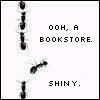Take a photo of a barcode or cover
Oh, Sherman Alexie, I had such high hopes for this, based on the name alone, but did not love it. :(
This reads very much like a collection of stories by a promising young writer searching for his best voice, which is exactly what it was when it was published two decades ago. Some of the stories straddle that classic Alexie line of humor and pain. Others don't quite get there, but there's a plenty of stuff here to stoke an emotional response and cause one to think about privilege through the lens of those who are almost wholly without it.
I was 2/3 done with this book when the news of Alexie's history of sexual harassment hit the news. It was interesting to experience such a perception shift in how I read the book. In particular, I began seeking out clues of Alexie's indiscretions where I hadn't been before, perhaps overanalyzing every female character and the ways he wrote about sex. It's a shame that Alexie, a man who possesses a keen gift for writing with empathy and feeling, hasn't demonstrated those values in his personal life.
I was 2/3 done with this book when the news of Alexie's history of sexual harassment hit the news. It was interesting to experience such a perception shift in how I read the book. In particular, I began seeking out clues of Alexie's indiscretions where I hadn't been before, perhaps overanalyzing every female character and the ways he wrote about sex. It's a shame that Alexie, a man who possesses a keen gift for writing with empathy and feeling, hasn't demonstrated those values in his personal life.
Some of the short stories are brilliant in this collection and others so-so. You can almost see Mr. Alexie growing into his voice as an author
This collection has become something of a modern classic and is likely one of the most assigned books in American English classes today. I've known of Sherman Alexie and this, his most famous work, for years now, but it was only when traveling through Washington state that my desire to read more local authors finally led me to pick this one up.
As the blurb on my edition says, this is a collection of "everyday" stories, as if that means anything. "Everyday" for whom? Based on these stories, each new day in Alexie's life is pretty much the same as the last one, full of the same characters, the same sorts of metaphors, the same nondescript dreams.
You read one of these stories, you've pretty much read them all. The same tone and voice echo throughout.
Why are this book and its author so worshipped? I think it has something to do with the fact that for years Alexie was the only Native American author writing about Native Americans that anyone knew of. If he was a white author, I don't think anyone would give a damn because the writing on its own isn't anything special.
It's vitally important that literature features a wide variety of viewpoints and that the authors we read reflect the diversity of the world we live in. Fortunately, authors today are far more reflective of America and the world in general. Native writers like Tommy Orange are winning awards for their writing.
That's the key. The identity of the author shouldn't play a part in determining what is or is not great fiction. If you slapped a blank cover on "The Lone Ranger and Tonto Fistfight in Heaven" and excluded the author's info, would anyone deem this one worth remembering?
As the blurb on my edition says, this is a collection of "everyday" stories, as if that means anything. "Everyday" for whom? Based on these stories, each new day in Alexie's life is pretty much the same as the last one, full of the same characters, the same sorts of metaphors, the same nondescript dreams.
You read one of these stories, you've pretty much read them all. The same tone and voice echo throughout.
Why are this book and its author so worshipped? I think it has something to do with the fact that for years Alexie was the only Native American author writing about Native Americans that anyone knew of. If he was a white author, I don't think anyone would give a damn because the writing on its own isn't anything special.
It's vitally important that literature features a wide variety of viewpoints and that the authors we read reflect the diversity of the world we live in. Fortunately, authors today are far more reflective of America and the world in general. Native writers like Tommy Orange are winning awards for their writing.
That's the key. The identity of the author shouldn't play a part in determining what is or is not great fiction. If you slapped a blank cover on "The Lone Ranger and Tonto Fistfight in Heaven" and excluded the author's info, would anyone deem this one worth remembering?
These short stories are a master class in how to write fiction. I had to stop highlighting passages that spoke to me because I was turning my entire book into a blue river of highlights.
A bit of an emotional beating to sit with these characters through these stories.
*read for school
I'm going to have to admit, I was a bit iffy about this book going into it, I'm not huge on short story collections. But wow this was really amazing. There were a few stories that weren't my favorite, but for the most past, they were so beautiful and well thought out. Studying them in lit class helped me unpack each story so much more and I really admire what Sherman Alexie created with the short story collection. Really worth the read!
I'm going to have to admit, I was a bit iffy about this book going into it, I'm not huge on short story collections. But wow this was really amazing. There were a few stories that weren't my favorite, but for the most past, they were so beautiful and well thought out. Studying them in lit class helped me unpack each story so much more and I really admire what Sherman Alexie created with the short story collection. Really worth the read!
2015 Reading Challenge- Book by a Native American Author
From the first page of the introduction to this collection of short stories, I was hooked. Sherman Alexie has a great voice, capable of conveying great sorrow and yearning, or making me laugh due to his self-deprecating or silly humor. His lyrical voice is wonderful, bringing (semi, maybe) real-life experiences on an Indian Reservation, or just knowing that anger against a powerful group who have stripped your people of almost everything and still aren't putting in the effort to make up for it.
I am, indeed, white, so I will never know what it feels like to walk into a 7/11 and feel the watchful eyes on my back, or feel the constant hunger eat at me from the inside, or walk down a street past rows of poverty-stricken homes populated by generations of alcoholics. I'm not saying that white people aren't judged or don't experience poverty or alcoholism, but this isn't even close. Native Americans have suffered so much at the hands of one race and continue to live in terrible conditions with few hopes of education and rising above your past.
It was so refreshing and enriching to read from the perspective of a Native American, especially when it feels like their voice is the weakest of all the races crying out to be heard. I think everyone can learn and gain so much from just listening to a minority, and the best way to do that, apart from driving out to Spokane, is to read books written by and about them. Sherman Alexie is a great voice out there, Native American or not. I'm really looking forward to reading his other work, and I especially hope I can read some essays or nonfiction in his voice since that's the first thing I realized I loved about his work.
One caveat: from the introdution, I gleaned that though these stories are not 100% true, they are based on his life and his experiences, which makes them semi-autobiographical, I suppose. Sometimes the sadness engulfed me, and sometimes the "magical realism" (or as I call it, surrealism) is a bit jarring for me, but all in all, this was totally worth it.
From the first page of the introduction to this collection of short stories, I was hooked. Sherman Alexie has a great voice, capable of conveying great sorrow and yearning, or making me laugh due to his self-deprecating or silly humor. His lyrical voice is wonderful, bringing (semi, maybe) real-life experiences on an Indian Reservation, or just knowing that anger against a powerful group who have stripped your people of almost everything and still aren't putting in the effort to make up for it.
I am, indeed, white, so I will never know what it feels like to walk into a 7/11 and feel the watchful eyes on my back, or feel the constant hunger eat at me from the inside, or walk down a street past rows of poverty-stricken homes populated by generations of alcoholics. I'm not saying that white people aren't judged or don't experience poverty or alcoholism, but this isn't even close. Native Americans have suffered so much at the hands of one race and continue to live in terrible conditions with few hopes of education and rising above your past.
It was so refreshing and enriching to read from the perspective of a Native American, especially when it feels like their voice is the weakest of all the races crying out to be heard. I think everyone can learn and gain so much from just listening to a minority, and the best way to do that, apart from driving out to Spokane, is to read books written by and about them. Sherman Alexie is a great voice out there, Native American or not. I'm really looking forward to reading his other work, and I especially hope I can read some essays or nonfiction in his voice since that's the first thing I realized I loved about his work.
One caveat: from the introdution, I gleaned that though these stories are not 100% true, they are based on his life and his experiences, which makes them semi-autobiographical, I suppose. Sometimes the sadness engulfed me, and sometimes the "magical realism" (or as I call it, surrealism) is a bit jarring for me, but all in all, this was totally worth it.



